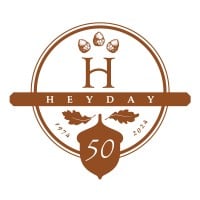
Heyday
Heyday is an independent, nonprofit publisher founded in 1974 in Berkeley, California. We are a diverse community of writers and readers, activists and thinkers. Heyday promotes civic engagement and social justice, celebrates nature’s beauty, supports California Indian cultural renewal, and explores the state’s rich history, culture, and influence. Heyday works to realize the California dream of equity and enfranchisement.






